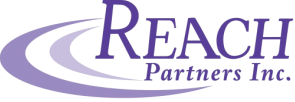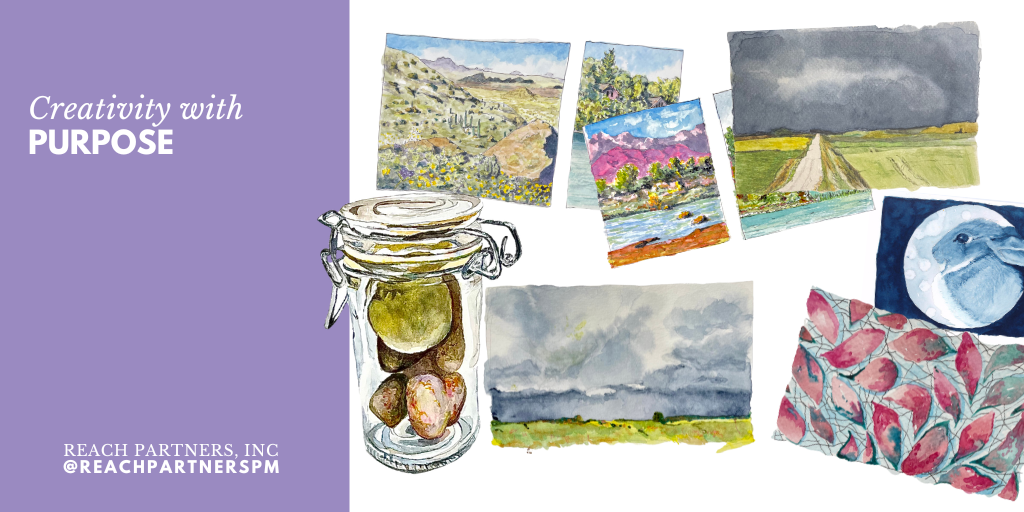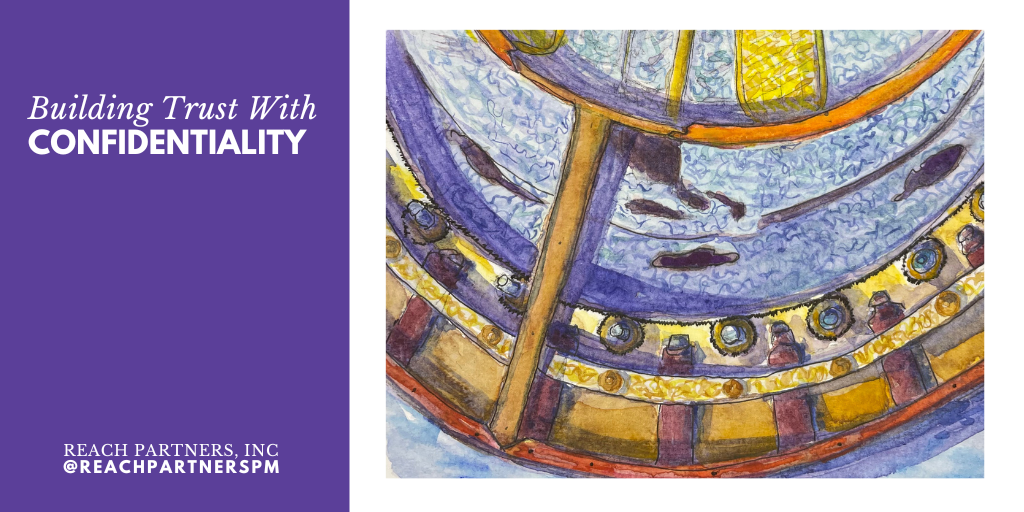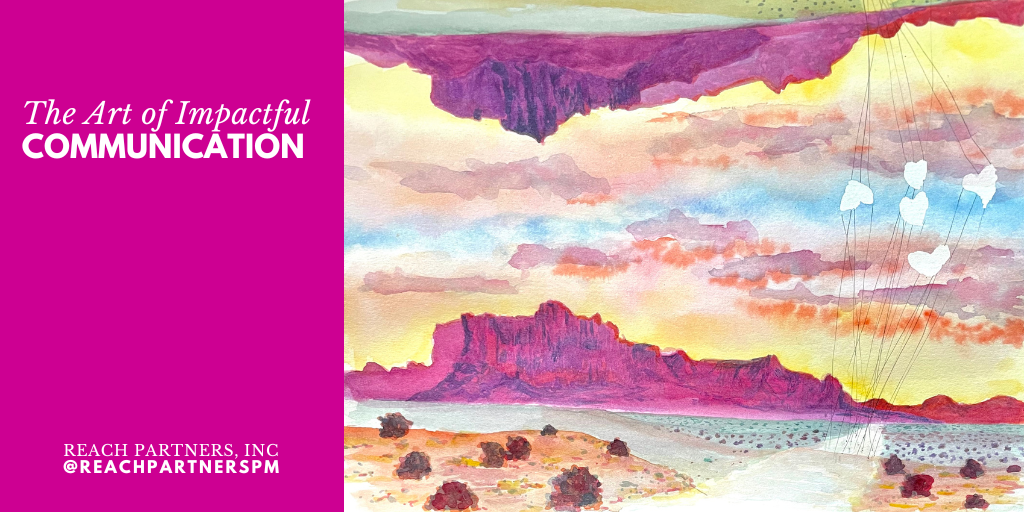|
Whenever two or more people meet in an office, conference room, or workspace, issues may arise. After all, differing opinions are a side effect of being human.
To prevent something small from shifting into a serious problem, we’ve learned at Reach Partners that open discussion can benefit the productivity of our team. Addressing small and large matters early on can lead to a healthier organizational culture. As much as we like each other, Anita and I acknowledge and accept we’ll have challenges working together. To address these, we keep “issues” as a weekly agenda item at our staff meetings. By giving ourselves a consistent time and place for the conversation, we can prepare for dialogue instead of argument. This allows us to focus our work time on client projects instead of stewing over issues. It is one way we value each other, deflate disagreements, and take action to move forward.
0 Comments
I started running just before I turned 30. After realizing I had never completed a consecutive mile, I wanted to see if I could reduce the amount I sweat (my cooling system is a slick thing to be admired) and transform into a long-legged, running gazelle (nope).
Still, what I have discovered after years of trotting is there are similarities between running a race (like a half marathon, 13.1 miles) and the project management work I do at Reach Partners (everyday, baby). For both, success starts by committing to do what I say I’ll do. In our years of experience, we have worked with two types of clients. The first we will call Delores*, the second we will call Helen*. (*Names have been changed to protect the innocent.)
Both clients invite Reach Partners to help them maximize their ability to complete a project. The difference is in how they acknowledge our contributions. One treats us as a publicly visible partner; the other asks us to do our work more quietly. To be clear, our efforts remain the same whether we work with Delores or Helen. And we are happy to partner with both. But here’s how the differences may play out: My family and I recently enjoyed a vacation in North Carolina. We visited the beach, attended a professional hockey game, and cherished time spent together.
We also toured the Battleship North Carolina. This ship participated in every major naval offensive in the Pacific theater of operations during World War II. It’s now an authentically restored National Historic Landmark. As we walked through the exhibits and learned more about the important role this ship played, I had an ah-hah moment. At Reach Partners, we often use the analogy “we drive the boat” with our clients. It’s a way to describe the role we can play when an organization needs assistance. In North Carolina, I started to question what kind of boat we drive. Every month you are invited to welcome our newsletter into your inbox.
What you may not fully appreciate is that we carefully choose what to share with you. For us, each newsletter is an opportunity to deepen relationships with our clients and readers. We view it as a conversation, an opportunity for us to learn together. Each month we draft one new blog post and choose additional content that we think might be valuable to you. We also publish because it encourages us to process and learn from the projects we are working on or completed. Writing about lessons gleaned from our work makes our newsletter more meaningful and purposeful. We want to give you a chance to learn from our experiences. This feels more authentic than writing about a random topic. We share our observations and ideas in the spirit of improving together. Our knowledge grows deeper when you, our readers, offer your own insights on the subject. There is connection as we learn together. We recently decided to update our client testimonials and debated whether omitting a client name made the testimonial useful. The discussion was particularly valuable because it led to a deeper dialogue about the link between confidentiality and trust.
Trust is the basis of all successful relationships. Among the various elements that foster trust, confidentiality stands out as a crucial component, especially when partnered with integrity. Our commitment to respecting client confidentiality isn't just a box we check off — it's the cornerstone of how we build and maintain strong relationships. There are moments when something as mundane as a well-crafted email evokes awe. Call me a communication nerd, but I'm on a daily quest to master this art.
A beautifully composed email with a simple layout? Delivered in advance, and it’s structured with information in order of importance? That's my kind of joy. I appreciate it when someone invests time and resources to plan their communications. You can tell when they do. They bundle messages and write one email, not two or three. They organize information, prioritizing my attention and action over their convenience. Best of all, they strategically exclude information that doesn’t pertain to me. In the moments before the launch of an event or project, I’ve heard Anita repeat a sort of pep talk with the team at hand. It always comes during the inevitable scramble that occurs as a project comes to fruition.
During this speech she reiterates the purpose of the activity, project, or event. She also tells the team that she’s intentionally pausing on politeness during this last-minute crunch. From that moment until everything is running on its own, the team will not hear Anita say please or thank you. This speech marks a moment of distinction when the project transitions from planning to execution, when the team moves from preparing to doing. At this moment, Anita shifts her role from relationship manager to focused executor. Declaring this small, but philosophically significant juncture, gives her the critical permission to “go,” and signals the team to do the same. How do you typically respond to conflict?
This may not be a question we are comfortable answering, but understanding the primary way you respond to conflict can help you become more aware of your tendencies. It also can help you make better choices when you don’t agree with someone. Whether it's a disagreement with a colleague at work, a misunderstanding with a friend, or a difference of opinion within family, conflicts are a natural and inevitable part of human interaction. How we handle them significantly impacts our relationships and overall well-being. Reach Partners knows the value of a wrap-up or lessons-learned meeting and how that can offer insight into future projects. We have talked about how best to present a Post Activity Report and who should be part of this kind of reflection.
But recently, someone asked whether it’s necessary to plan a wrap-up session when the event is never going to happen again. The short answer: yes. The longer answer, here’s why: |
Reach PartnersYour partners in leadership. Categories
All
Archives
July 2024
|
|
|
Reach Partners, Inc
3330 Fiechtner Dr. Suite 100 Fargo, ND 58103-2321 701-271-8170 Copyright (C) 2024 Reach Partners Inc.
|










